Q&A: Author Jerry Apps on new special, ‘Jerry Apps Food & Memories’
October 20, 2022 Leave a Comment
Join beloved Wisconsin author and historian Jerry Apps and his daughter, author and educator Susan Apps-Bodilly, to explore the ways food shapes families and carries on legacies. In the all-new special, Jerry Apps Food & Memories, Jerry shares childhood stories through food his mother, Eleanor, painstakingly prepared for the family.
A companion to the Apps’ Wisconsin Historical Society Press book “Old Farm Country Cookbook: Recipes, Menus, and Memories,” Jerry Apps Food & Memories premieres at 7 p.m. Monday, Nov. 28 on PBS Wisconsin.
In anticipation of the premiere, Jerry Apps spoke with PBS Wisconsin about his childhood and the setting for this television special.
PBS Wisconsin: What was it like working with your daughter on this project?
Jerry Apps: I’ve worked with Sue on other projects. We’ve done books together. The book that’s the background for this show, Old Farm Country Cookbook, was one that Sue and I had done together. She’s an elementary teacher here in Madison and she also is an author of several other books, so it was a pleasure to work with her.
And in fact, she had a very important role in writing the cookbook because she tried nearly all of the recipes and that’s a bit beyond me.
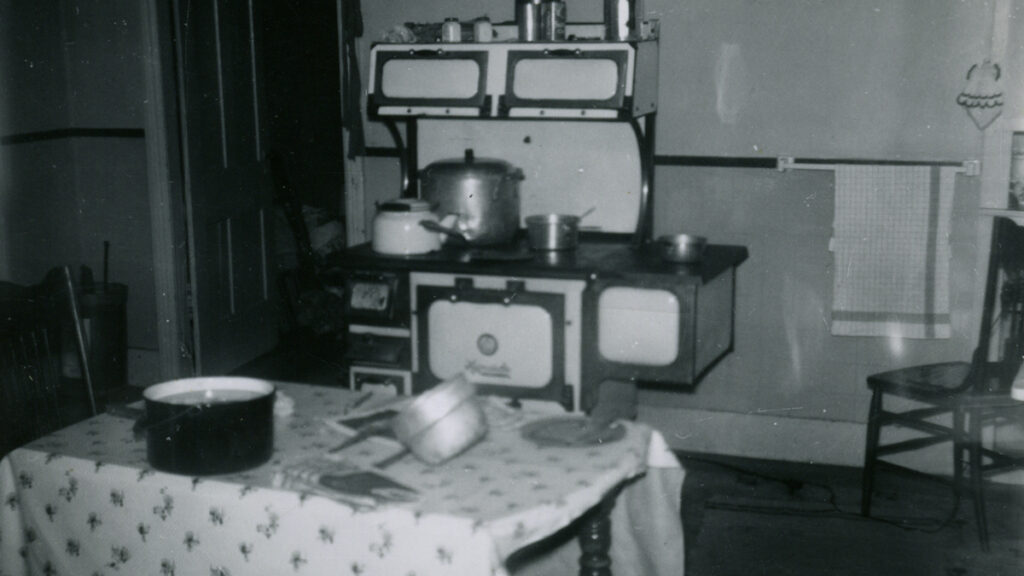
Apps’ family farmhouse kitchen.
PBS Wisconsin: This cookbook is as much about sharing the stories as it is about the actual recipes. Can you talk about how you approached writing this book with Susan?
Apps: I was born during the Depression in the 1930s. We had, compared to today, very little. My mother did all of her cooking on a wood stove without indoor plumbing or electricity. And when she passed away in 1993, we found her old recipe box — the one that I remembered her using when I was a kid. And in working with Kate Thompson from the Wisconsin Historical Society Press, the family thought, especially Susie and I, that there might be a book here because this is a fairly unique situation compared to today.
We decided to organize this book a bit differently than the typical cookbook that has some main dishes and desserts and all that kind of a thing. Let’s organize the book around stories. And so I, of course, was in charge of writing the stories from my memory and from chats with my two brothers. And then Susie’s role was to take the recipes and translate them.
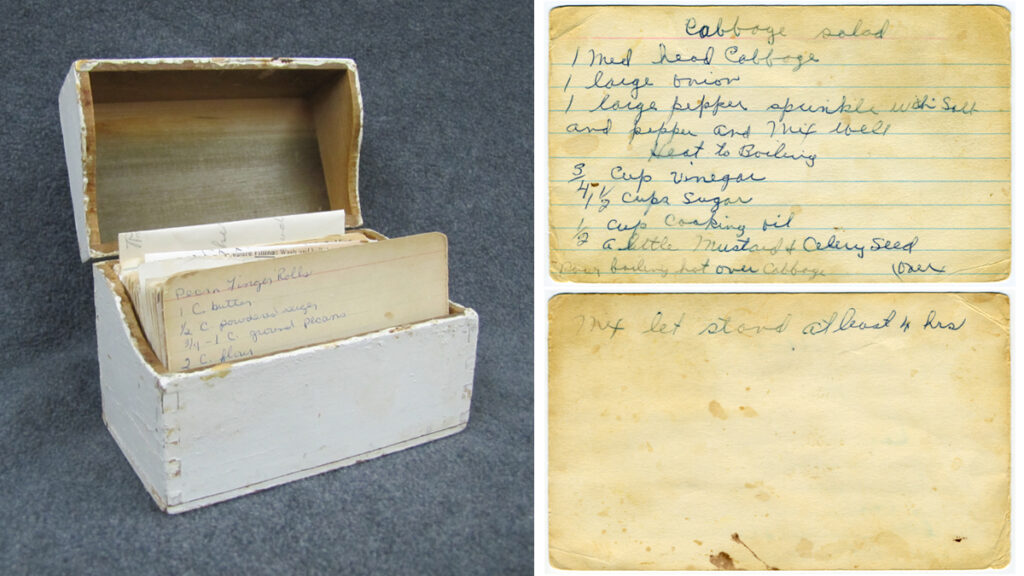
Eleanor Apps’ recipe box and a sample recipe card.
PBS Wisconsin: What were the recipes like?
Apps: My mother’s recipes were short on directions. She was of a mind that anybody who knows anything about cooking at all, they would know what to do. She would list the ingredients, and that’s about it!
So, of course, Susie spent an enormous amount of time taking each recipe and translating it into the language of today. For example, my mother’s oven had no thermometer so there were no degrees mentioned.
I imagine my mother would have said, “Well, anybody who knows anything about cooking knows how to use a wood stove oven, for heaven sakes!” And we would have looked at her and said, “Well, yes. But, Mom, how do you know when the oven was the temperature that you could use to bake bread?” And she would say, “Oh gee, everybody knows that! You open the door and put your hand in!”
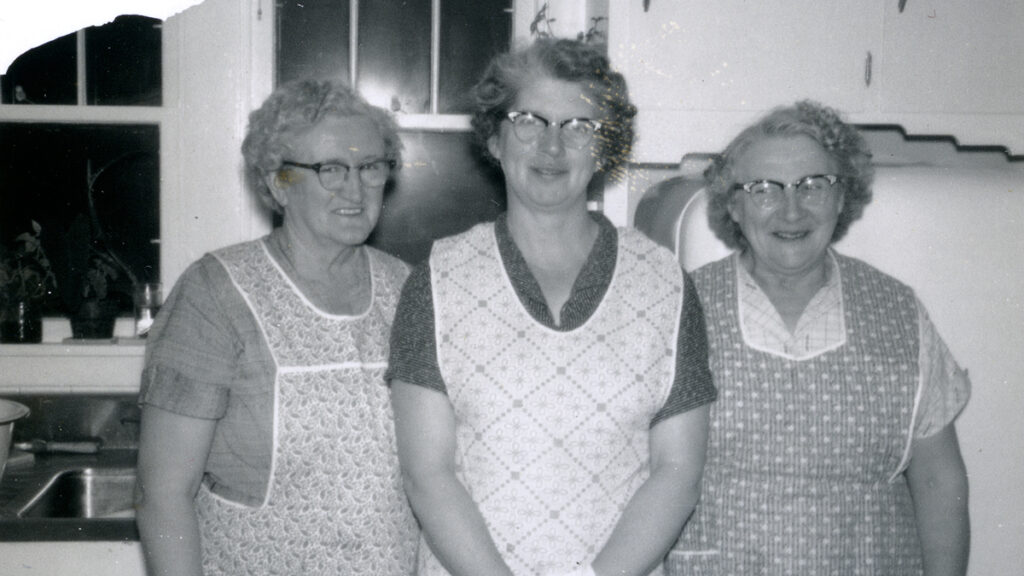
Eleanor Apps (right) with her sisters on Thanksgiving, 1959.
PBS Wisconsin: Sounds like she was a pretty intuitive cook.
Apps: For my mother, cooking was as much of an art as anything because she knew what a pinch was and she knew how to add ingredients to taste — she knew what the temperatures were in the oven by merely putting in her hand.
She also knew the difference between the heat that pine wood would create compared to oak wood. Most people aren’t aware of the knowledge that farm women needed to have in those days. And we had those different kinds of woods, because my dad knew that as well.
And she would mix those two types of wood, and that’s how she controlled the heat. She had to recognize from the bark of the wood, what kind it was, and then know what to expect in a way of heat. That’s some of the knowledge that the cooks of that day knew that today the modern day cook would say, “What?!”
PBS Wisconsin: What would your mom say about this cookbook being published?
Apps: I think she would have been pleased that somebody would be interested in the work that she had done on the farm with so few of the conveniences that we take for granted today. I think she would have said something like, “Who in the world would want to try and do what I’ve been doing?”
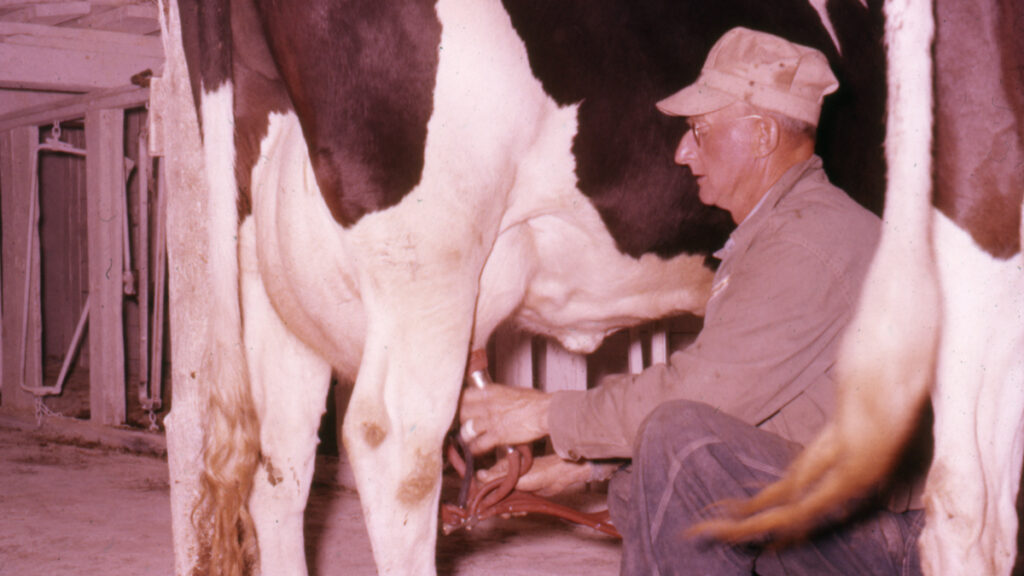
Herman Apps milking a cow by hand.
PBS Wisconsin: What sets dairy farmers apart from other farmers?
Apps: The early dairy farmer had to be present at the barn twice a day for 365 days of the year. There were no vacations. When we would see some people who we’d call “tourists” in Wild Rose, my dad would say, “You gotta feel sorry for those folks. They don’t have enough work.”
He would have us believe that because we were working every day of the year that work’s a good thing! We ought to be proud of that, and in fact he was. So that’s one of the things that set dairy farming apart from crop farming, for example, where you could go off and do something else.
I don’t know how many people realize that the dairy farm that I grew up on — and there were hundreds of them at that time — required that kind of devotion. I’ve spoken to many, many groups over these last 40 years, and I’m surprised how many people will ask me, “You mean you had to milk those cows on the weekends? Or on Thanksgiving, and on Christmas?” Yes, you did! That was part of the deal, and yet my dad would say that he loved it.
That part troubles me. I can’t quite understand that, because he liked to do a lot of other things as well, but when it came five o’clock, by golly, whatever else we were doing, we were back home getting ready to milk the cows.
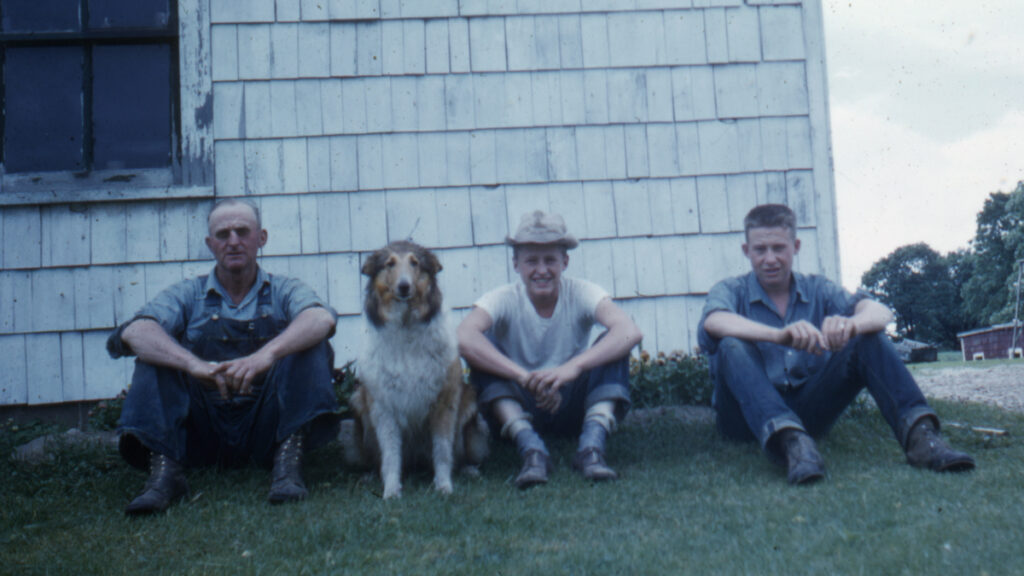
Herman Apps (left) and Jerry’s two brothers.
PBS Wisconsin: It’s incredible how much dedication that required and how much the family was connected by this shared work.
Apps: The positive thing about all that, as a kid growing up in that time, is that we learned responsibility. We learned how to work. We learned to show up on time. And these translated into values that many employers really enjoyed.
I will never forget, when I was in college, one of the summer jobs I had was working at a pea cannery and I was to be the supervisor at the vinery. I was 19 years old, and the boss looked me over and he said, “Are you a farm kid?” and I said yes. “Do you have a crescent wrench?” I said, “No, but I can borrow one from my dad.” And he said, “You’re hired.” That’s all he wanted to know!
It speaks volumes to me as I reflect on it today. I thought, “What’s with this guy, can’t he find anybody to work?” But the farm kids had these values that came without anybody ever saying, “Here’s the values that you should have.”
They have negative dimensions, too. I’m an old guy and I still work at least a half a day, every day. Sometimes I take off on Sunday. And my wife thinks I’m crazy and all the people around me think I’m nuts. We’re at a retirement center right now and I’m the only one that’s working all the time. Part of that comes from my growing up on a farm where, if you were not contributing, then you were a detriment. No one ever said it that way, but that’s how I understood society.
My dad would put it another way. This I remember from him often, and he said this to me one time when he was 92 years old. I said, “Pa, how are you doing?” He said, “I’m doing the best I can with what I’ve got.” That’s a fantastic message.
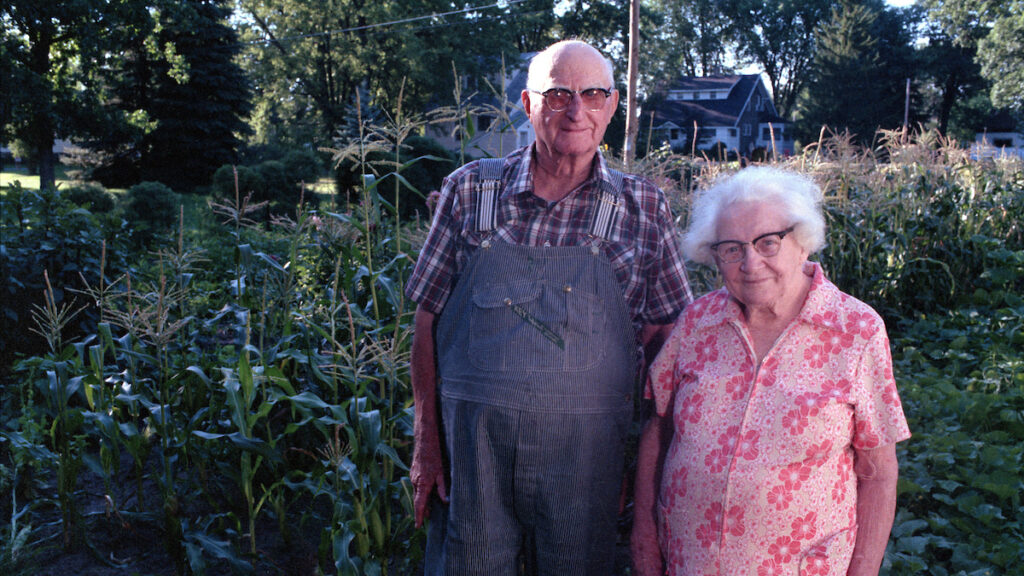
Herman and Eleanor Apps. Photo by Steve Apps.
PSB Wisconsin: Do you think your mother was as satisfied as your dad was on the farm?
Apps: I think so. Tell you the truth, I never heard her complain. She had every right to complain, my gosh! The stove would go out when it shouldn’t have. The wood was too wet and would sizzle and wouldn’t bake the bread well. And she had some kid — me! — who didn’t show up to carry the wood.
On the educational level, neither of my parents graduated from eighth grade. My dad left fifth grade. My mother left in seventh grade. That’s the negative side of what went on during that time, because when you were old enough, or big enough, that’s when you were pulled out and you went to work.
My mother would say, sometimes, “I wish I had been a teacher.” She didn’t realize that she was a teacher, just not in a formal sense.
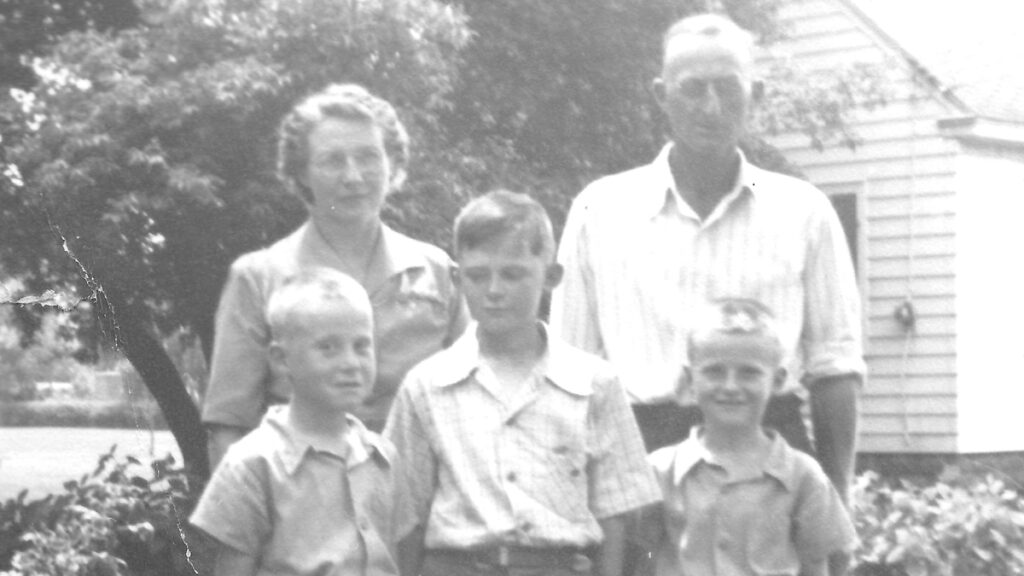
The Apps family on their farm.
PBS Wisconsin: How do you envision the legacy of your work as an author and a speaker?
Apps: If there’s one thing I’d like everybody to leave with it is, number one: The history of agriculture is important. The history of farm life is important. The history of small rural villages is important.
And right now I’m working on how we can better bring rural and urban America back together because never has the split been wider. And we cannot go forward as a country, as a nation, as a people, unless we realize that we depend on each other tremendously. I just published a book on the history of county and state fairs. I concluded in the book that the fair is one way to bring society back together again. It’s one way to help urban people understand what farm life was like, and I think it’s so important.
Who knows what people are gonna think of my legacy, but I would like to believe that first, everybody has a story to tell. And stories are one way to help bring us back together.
 Passport
Passport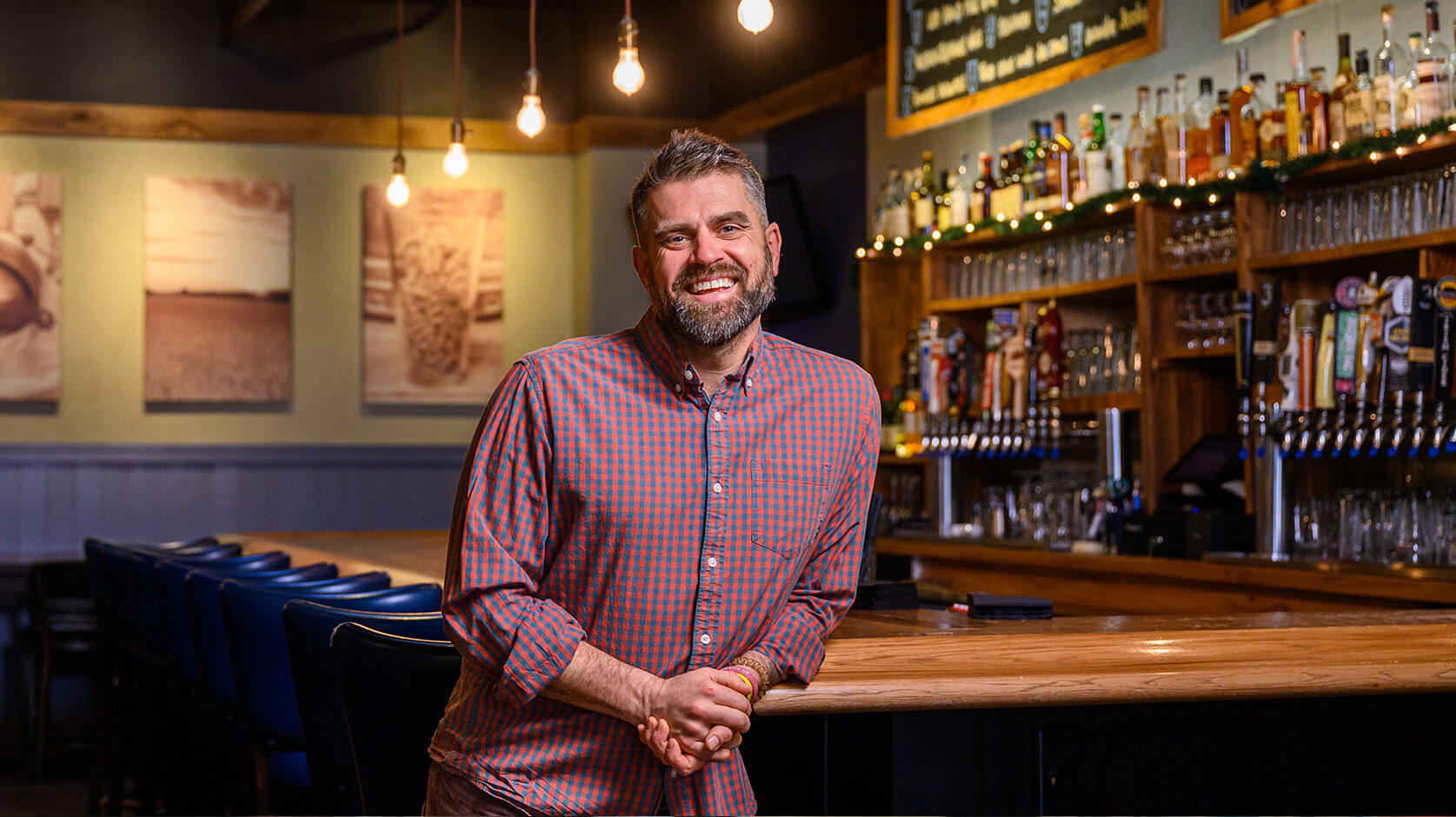

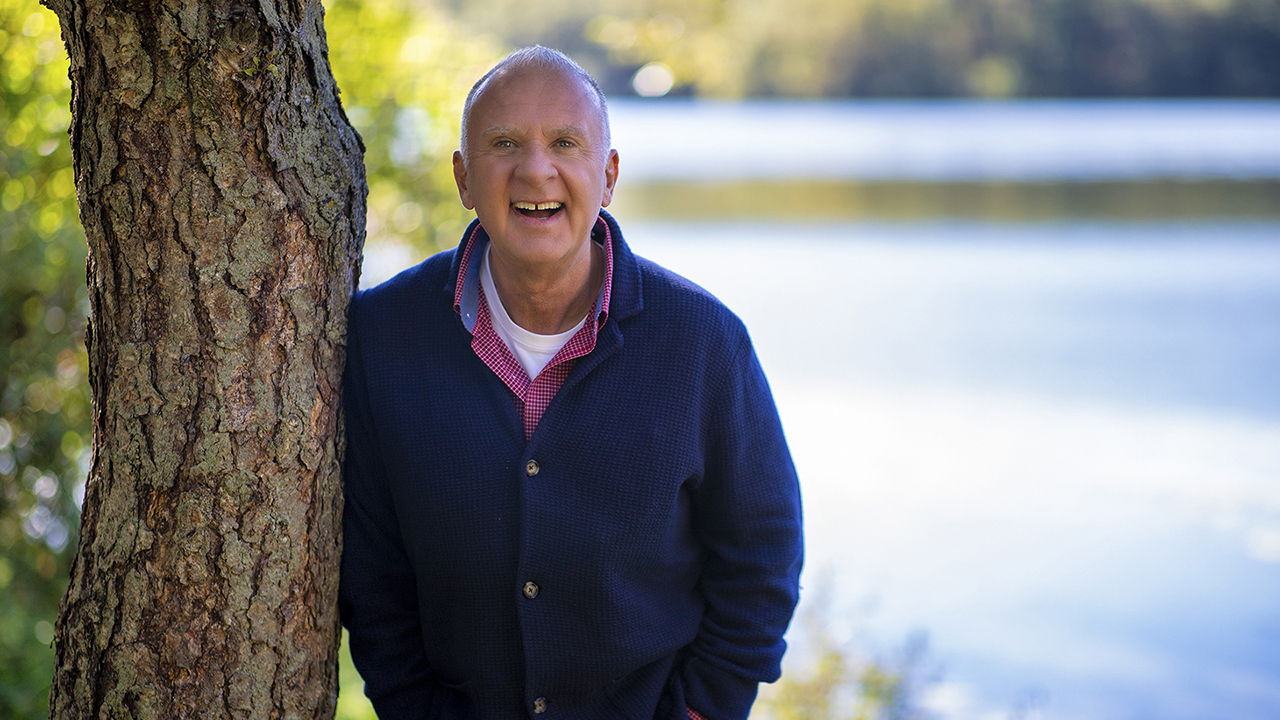
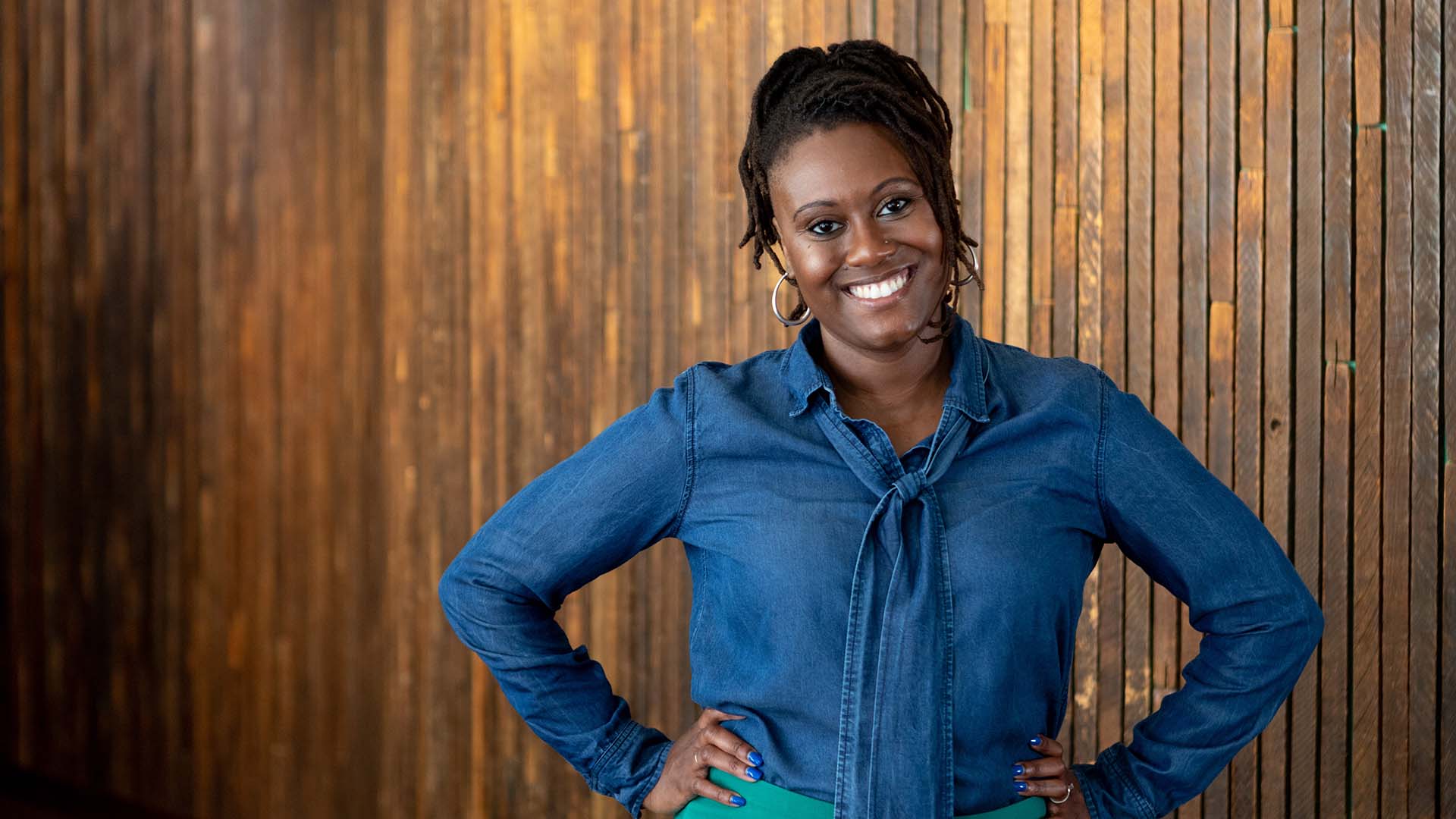

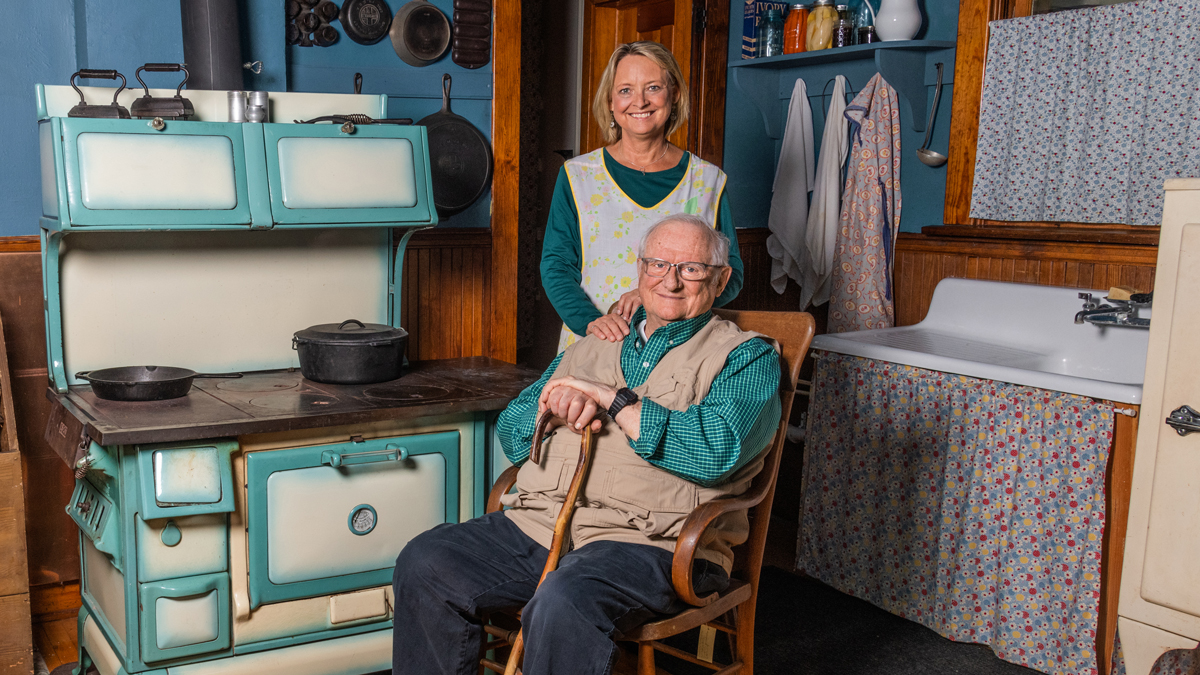

Dylan Jade says:
I grew up in Madison, received all of my “Schooling” there, but had the privilege of spending some summers on a local schoolmate’s farm. Jerry’s books have always held the power to transport me back in time and place to an era that was so pleasant. I have enjoyed all of them and look forward to more “adventures”.
Joanne Hesselink says:
I can really relate to Jerry’s stories. I was born in 1936 and grew up on a farm in Chippewa County. My older brother and I walked 2 miles to a rural grade school, helped with the milking twice a day and worked the fields with horses. We first got a tractor to help when I was about 10. We finally got electricity when I was in second grade. As I watch his PBS shows and read his books, it feels like I am back home again. Keep them coming, Jerry.
Marion G Blakely says:
Technically, Jerry’s dad is not milking the cow by hand. You can see the milking machine on the cow’s udder. Milking by hand would mean using his hands to strip the milk from each quarter.
When we started milking our first cow, we did do it by hand, but that didn’t last very long. We soon had a Surge milker bucket, purchased at a farm auction nearby.
I love Jerry’s stories about the old days, especially since my grandparents were from Waushara County, so it seems like he is talking about my family as well as his own. I have many of his books, including this cookbook. I hope he continues to write many more.
Siri Bendtsen says:
Still carrying sweet memories of being fed by Grandma Apps in her farm kitchen. Kind, generous and welcoming are words that come to mind.
Andrew Plath says:
Even though I grew up in the City of Wausau where I was born in the 1950s with nearly all of the modern appliances that we have today, my grandmother used a wood range in her kitchen until she turned 80. Grandma Werner was a pro at cooking with a wood range and knew how to regulate the temperatures for baking etc.
I was also not far from seeing farm life as my mother’s cousins on the Rusch side of the family ran a dairy farm on 120 acres in the Town of Stettin. The Rusch family was among the first to settle in that township. I spent a fair amount of time visiting that farm. We knew where milk comes from and had spent many times in that milking parlor. I had walked the fields and learned not to step on cow pies. I still ride the bike out that way and sense the old Wisconsin that I knew.
I look forward to seeing the broadcast on PBS Wisconsin.
Shirley Schwartz says:
Your post has me wondering what Rusch lineage your family is from. I am from the Johann Rusch ancestry from Calumet / Manitowoc counties Wisconsin.
Susan Hoefs says:
My husband happened to come across this post on PBS and I must say I’m thrilled! I am 78 years old and have read many of your books and in fact am reading the cookbook for the second time now. I am of a like mind in appreciating all aspects of rural life. My husband and I find relaxation and comfort taking backroads several times a week. Though we live in a semi-rural area north west of MKE it seems we can’t get far enough away from “city and it’s issues” and your books allow us to do just that.
One of many favorite stories is from the “Blizzard” chapter in the cookbook about your Pa going to the school to walk you boys home in blinding snow and entering the farmhouse to a “big kettle of vegetable soup” steaming on the stove! My 4 grown kids took the bus but I could see myself coming home to that wonderful treat!
I am somewhat familiar with the Wild Rose/Wautoma area as we spent a few vacations on a lake in the area and still find relaxation in the area because there is much less traffic. You are surely lucky to still have a home in the area as well as Madison!
We will be sure to record and watch this latest PBS episode (we have watched every PBS episode so far) and sincerely thank Susan as well for the incredible insight into
rural life. It would have been a life I would have chosen at one time but at age 78 it won’t happen except through your books.
Thank you for your wonderful stories! SH
William Reid says:
I grew up in Madison, received all of my “Schooling” there, but had the privilege of spending some summers on a local schoolmate’s farm. Jerry’s books have always held the power to transport me back in time and place to an era that was so pleasant. I have enjoyed all of them and look forward to more “adventures”.
David D Peterson says:
This is a wonderful article. ! always enjoy Jerry’s books. I enjoy chatting with him at his book launches he has had in Wild Rose. His brothers are also great people. Looking forward to the program on PBS.